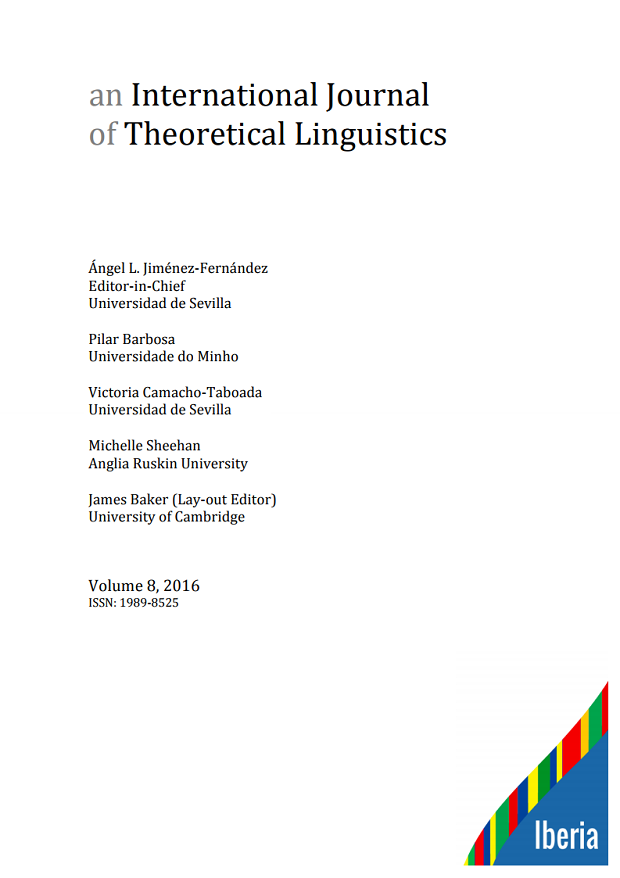What Latvian tells us about strong PCC effects
Keywords:
debitive, Person Case Constraint, agreement, case assignment, Latvian, dative, moodAbstract
The nature of Person Case Constraints (PCC) in natural languages is among the most debated issues in current linguistic research. In this article we consider an instance of strong PCC attested in the Latvian debitive construction, whereby a 1st or 2nd person internal argument cannot appear in the nominative in the presence of a dative debitor. We argue that the Latvian facts support an analysis of strong PCC effects along the lines of Sigurðsson’s (2002, 2004) proposal that PCC is due to a dative intervention effect inside a multiheaded approach to pronominal licensing. We preliminarily extend the analysis to other instances of strong PCC effects, showing that Sigurðsson’s theory is a good candidate to unify strong PCC effects under a common treatment.
Downloads
Downloads
Published
How to Cite
Issue
Section
License
Las ediciones impresa y electrónica de esta Revista son editadas por el Secretariado de Publicaciones de la Universidad de Sevilla, siendo necesario citar la procedencia en cualquier reproducción parcial o total.Salvo indicación contraria, todos los contenidos de la edición electrónica se distribuyen bajo una licencia de uso y distribución “Creative Commons Atribución-NoComercial-SinDerivar 4.0 Internacional”

